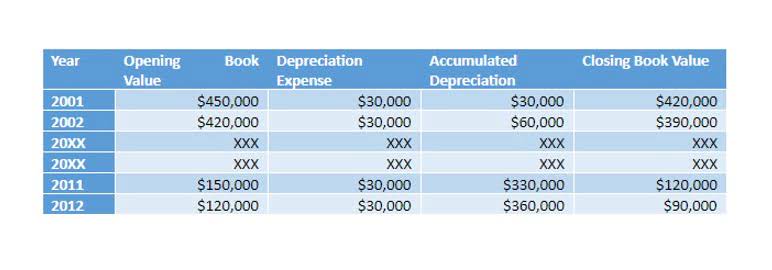
When you have a dedicated team, you can rest assured that staffing changes and absences will not impede your business from complying with legal and financial regulations. Think about how long it’s been since your company has last had thorough bookkeeping — (does it span months or years?) income statement and gauge how many business operations have been performed during this time. The size of the chosen time period affects both how long and how strenuous it will take to catch up. With an up-to-date understanding of your financial status, planning for the future becomes much easier. It provides an opportunity to set realistic budgets and does wonders in terms of forecasting future business scenarios.

Start your Free Trial Now!

Implementing the catch up approach allows businesses to meet year-end reporting requirements, assess their financial performance, and make informed decisions for the upcoming fiscal period. Throughout the catch up process, you might want to maintain detailed documentation to track the progress of reconciliation efforts and provide an audit trail for future reference. Once the catch up process is complete, you need to generate comprehensive financial reports to summarize the updated financial position of the business. Catch-up bookkeeping becomes essential when you know your accounting is a mess.
- Establish internal controls to safeguard against errors, fraud, and misuse of financial resources.
- It’s more of a critical component of your business’s financial management.
- Businesses may encounter challenges in managing cash flow effectively, potentially leading to liquidity issues and missed payments.
- If you need to catch up on your bookkeeping, catch-up bookkeeping can help you get your books in order and improve your financial performance.
- Sooner rather than later you have to take the time to do a proper catch up of your bookkeeping and tax requirements and set up proper financial processes moving forward.
- Catch-up bookkeeping refers to the process of bringing your business’s financial records up to date.
Free Accounting and Bookkeeping Tasks Checklist for a Small Business
Consider outsourcing non-core bookkeeping tasks to professional accounting services. Outsourcing allows you to focus on core business activities while ensuring that bookkeeping tasks are handled by skilled professionals. Updating financial statements is a critical aspect of catch up bookkeeping, as it provides a business’s financial state outlook. Reconciling accounts is a fundamental aspect of catch up bookkeeping that ensures the accuracy and integrity of financial records. Catch up bookkeeping allows businesses and individuals to accurately report income, claim deductions, and fulfill tax obligations on time. Besides, it facilitates tax planning strategies, such as identifying deductible expenses or maximizing tax credits, to optimize tax liabilities.
Understanding Catch-up Bookkeeping
Audits provide assurance that financial statements reflect the true financial position of the business and comply with regulatory requirements. So merely catching up with your bookkeeping https://www.bookstime.com/ is not the reason you need it. It’s more of a critical component of your business’s financial management.

Categorize and Organize Your Books

Catch-up bookkeeping can bring your financial records up-to-date, offering a more precise look into your business’s financial health. It is especially important during tax seasons or any other crucial periods when you need accurate and up-to-date statements, such as tax audits or seeking legal and financial advice. Additionally, if you started a new vertical in your business, you may want to track their profitability separately; then, you also need to realign your numbers to reflect the new reality.
Startups
Your role as the bookkeeper is to fill in the gaps and ensure that all transactions are properly recorded and categorized. Of course, this process is tedious, but seeking help from outsourced accounting professionals can help you catch up bookkeeping identify errors that you may have made in previous steps. The professionals fix any errors, ensuring the balance in your bank statement reconciles with the balance in your company records. In today’s digital landscapes, it’s vital for the catch-up bookkeeping team to have skills and familiarity with various bookkeeping software and tools. That’s necessary to streamline the process, facilitate proper documentation, secure records, and provide seamless access to financial data.
- So let’s tackle the reasons why and how you can get all your bookkeeping back on track.
- Once everything is back in order, make it a point to implement systems that prevent future backlog and the need for bookkeeping clean-up.
- Do you feel slacked down on your bookkeeping and feel overwhelmed?
- Maybe the current software cannot accommodate the size of your growing business and you wish to upgrade to a more sophisticated suite.
- It all depends on how long you have ignored your books, and how messy your records are.
- Overall, bookkeeping is a critical component of your business’s success.
- By reconciling your accounts beforehand, you are saving your accountant and yourself time and money.
- Download Receipt Bank’s mobile app and get started on snapping your receipts.
- Organized bookkeeping also helps run smoother and predict what’s coming, making it easier to grow and succeed in the long run.
If they aren’t, identify and fix any errors to ensure that the balance in your bank statement matches the balance in your company records. Organizing critical tasks based on urgency and impact can help you manage financial records more efficiently. Failure to comply with these requirements can result in penalties, fines, or legal consequences. Catch up bookkeeping enables businesses to rectify any discrepancies or errors in their financial records and demonstrate compliance with regulatory authorities. Catching up on bookkeeping can be a challenging task, but it’s essential for the success of your small business.

Leave A Comment